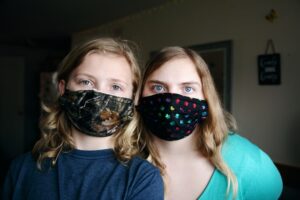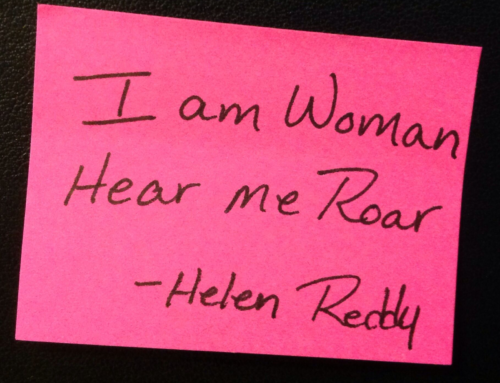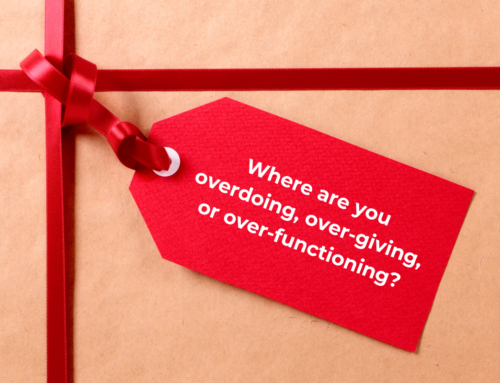There is a quote that really resonates with me that goes like this:
“Grief is a natural response to loss. It’s the emotional suffering you feel when something or someone you love is taken away. Often, the pain of loss can feel overwhelming. You may experience all kinds of difficult and unexpected emotions, from shock or anger to disbelief, guilt, and profound sadness”
-Unknown
It has been almost two months since I said goodbye to my mom in the ICU unit of a Wichita hospital. She died on March 5, 2020, and I was able to be with her in the hospital for the 10 days prior to her passing. I am eternally grateful for that experience, as I know so many others who have not been able to be by the bedside of their loved ones. My two uncles have been hospitalized since this pandemic started and my heart hurts for my family members who are unable to be with their loved ones. My family is not alone.

When I researched the definition of grief for this blog, the first definition is “deep sorrow, especially that is caused by someone’s death.”
However, I was taken back by the second definition of grief, which is “to be troubled or annoyed.” Similar words include, “bother, irritation, vexation, harassment, nuisance, aggravation, hassle, and headache.” For instance, “ We were too tired to cause any grief.”
While first put off by that second definition, it struck me —we all are grieving. We are bothered, irritated and hassled by the change that the pandemic has created.
It doesn’t matter if it is a loss of a mother, a family member, a job or our sense of freedom, we are all being asked to say goodbye, even if just temporarily, to what we know of as our routine and our normal sense who we are.
And, all this breeds fear
The Fear In A Pandemic
“No one ever told me that grief felt so like fear,” says C.S. Lewis in the opening line of A Grief Observed.
Is grief fear? Is fear grief? I believe that they are closely connected, and I know few people who have not experienced a loss. And, loss by death, a job, a relationship or the sense of who we think we are creates fear.
Losing my mom causes me to fear how I am going to do everything I need to do to liquidate her home and her personal items. My identity as a daughter has forever changed. And, that’s scary too. Mother’s Day is coming up and I am afraid of who am I without a mom on the planet.
Fear and grief are universal. We all suffer. We all lose someone or something in this journey called life.
I have had several clients that have left long-term, high-profile positions in their companies. There are relationships that end and moms who send their kids off to college. An empty nest creates much discord in the identity of Mother.
Losing a sense of self as a professional, leader, breadwinner, partner or mother, creates a sense of loss. We can become untethered.
This lost sense of self, not identified with anything going forward, can provoke great fear. In my last blog, Are You Resisting Change Or Embracing Change? How To Lean Into The Chaos And Be With Something New, I discussed that this change was “thrust upon us.”
Sudden change can be very disorienting and lead to the projection of negative outcomes in the future. We are habituated to think of the worst-case scenarios. When we don’t know and feel uncertain, we make stuff up. And, 90 percent of the time it is negative.
In her Psychology Today article, Grief and Fear: Maybe grief doesn’t just feel like fear, maybe it is fear, Samantha Smithstein, Psy.D states, “And the fear is not just about the untethering—about not having the answer. It’s because the answer to those questions isn’t knowable in a minute. Or a day. Or a month. Or sometimes even a year. And so while we figure it out we have to live in a world without orientation.”
And, that is scary for all of us.
Grief and Fear in a Pandemic
Are you grieving? What are your fears related to COVID-19? How are you dealing with the sudden changes in your life? What are you doing to orient yourself in this new environment?
“We’re grieving, but we’re also afraid that we might get infected as well. So we have kind of a double tragedy, a double trauma going on here,” says Sandee LaMotte, of CNN in her article Grief and Fear After a Covid-19 Death: Managing a double trauma. She also shares that what we are experiencing is not unlike a war or 9/11. Many of us are left to not know about the last hours of a loved one’s life, no funerals or receptions to offer condolences and a hug. We are left to deal with the uncertainty.
As I stated above, it is not just a physical death that breeds this fear. We all are dealing with the unknown. We do not know when this will end—when we will be able or go back to work or to school. There are fears of stores and schools opening up too soon and another pandemic in the fall. It feels never-ending.
Scott Berinato spoke with David Kessler, the world’s foremost expert on grief. With Elisabeth Kübler-Ross, he co-wrote On Grief and Grieving: Finding the Meaning of Grief through the Five Stages of Loss about fear and grief. According to Kessler, “Anticipatory grief is the feeling we get about what the future holds when we’re uncertain… Anticipatory grief is also more broadly imagined futures. There is a storm coming. There’s something bad out there. With a virus, this kind of grief is so confusing for people. Our primitive mind knows something bad is happening, but you can’t see it. This breaks our sense of safety.”
Five Tips To Dealing With Grief And Fear In A Pandemic
We are all grieving something. We all are feeling fearful of the future and what it holds. We have never experienced anything like this. But, there are things that we can do that can help.
First, please read the articles that I have referenced in this blog. There is really good information in all of them.
Second, practice staying in the now. I know it is hard not to project into the future, but remember that your brain is still looking for lions and tigers and bears. It does not serve any of us to make up what the future holds. One of my favorite lines is, “I don’t know what the future holds, but I know who holds the future.” Put your future in faith and trust that you are—that we’re all—going to come out on the other side.
Third, be kind to yourself and each other. Stay at home orders with our families can be challenging. My husband handed me the Denver Post this morning and pointed to an article entitled, “How to Overlook Your Partner’s Annoying Behavior in Quarantine” by Dan Danbomb. It is funny and informative. I say, take time for yourself. Practice self-compassion and spread that compassion to those around you.
Four, I hope you are enjoying the great outdoors. With Spring in the air, the flowers blooming and tree leaves making their return, enjoy! The Universe is still operating, the sun is coming up each day and you are here, awake and moving through your day in spite of COVID-19.
Five, let’s be grateful for all that we have and all that we are! We are here now for a reason, and this season of the virus will end.
As always if you are struggling with these times and would like support, please reach out to me or anyone. We are all in this together!
Blessings,
Christy




